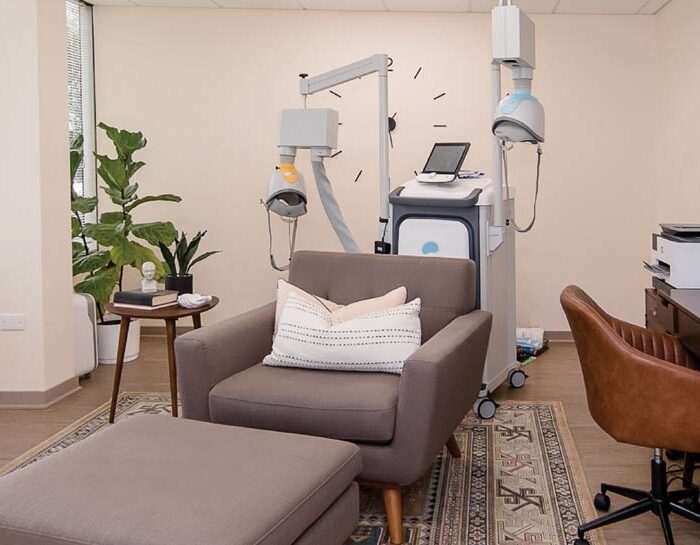Healing the Mind
By Mitch Hurst
By Mitch Hurst


 Research shows over the past year the COVID-19 pandemic has caused a spike in depression and other mental illnesses. That is on top of the more than 18 million Americans each year who suffer from a depressive episode, and the more than 2.2 million Americans who face challenges related to Obsessive-Compulsive Disorder (OCD).
Research shows over the past year the COVID-19 pandemic has caused a spike in depression and other mental illnesses. That is on top of the more than 18 million Americans each year who suffer from a depressive episode, and the more than 2.2 million Americans who face challenges related to Obsessive-Compulsive Disorder (OCD).
While the most common treatment for both depression and OCD is antidepressants and other prescription drugs, alternative treatments are becoming increasingly popular, in particular for patients who suffer negative side effects from pharmaceuticals or for whom prescription drugs have proven to be ineffective.
Relief TMS offers a noninvasive solution to depression, OCD, and other mental health diagnoses without the use of medication, side effects, or invasive procedures. The COVID-19 pandemic and its effect on mental health has made the solution more valuable than ever.
“Some patients, stable for years, are all of a sudden facing relapses due to COVID-related stressors, social isolation being one of the major contributors. Others may develop entirely new illnesses,” says Dr. Teresa Poprawski, Chief Medical Officer at Relief TMS. “Although unintended consequences of lockdowns, meant to avoid contracting COVID-19, are creating shockwaves that will be felt for long in terms of mental health, people who do contract the SARS-CoV-2 virus may suffer long-term neuropsychiatric problems.”
The treatment offered by Relief TMS, deep Transcranial Magnetic Stimulation (dTMS), involves using a magnet that is placed on the head with a machine that looks similar to an old-fashioned hair dryer. It offers two distinct advantages over more traditional approaches. First, no pharmaceuticals are administered, so patients do not have to deal with the uncertainty or discomfort of side effects. Second, the treatment regimen is developed based on brain imaging, or brain mapping, a process that creates a visual representation of a patient’s brain activity. Each patient receives customized treatments based on the brain’s individual needs.
“Our dTMS treatments are FDA-approved for depression, OCD, and for smoking cessation. By identifying the areas of the brain that correlate to specific symptoms, we can precisely target those areas with TMS and reestablish normal functioning,” Dr. Poprawski says. “The precision and effectiveness of the method make it an invaluable tool in my neuropsychiatric practice.”
Susan Mueller, Relief TMS CEO, says its relationship with patients is based on partnership and trust, and since many have already tried traditional mental health treatment, they are invested in outcomes.
Relief TMS sees patients of all ages and many insurance plans cover the treatment. The most important thing for staff at Relief TMS is that individuals get the right help they need.
“The medical device we use is definitely ahead of the game and we use the latest technology,” Mueller says. “But we won’t treat a patient if it is not right for them. We have a whole network of therapists and doctors we can refer someone to and we are always willing to help someone—whether we treat them or not.”
Relief TMS is located at 800 Skokie Blvd., Suite 260, in Northbrook, 224-415-3605.
Sign Up for the JWC Media Email